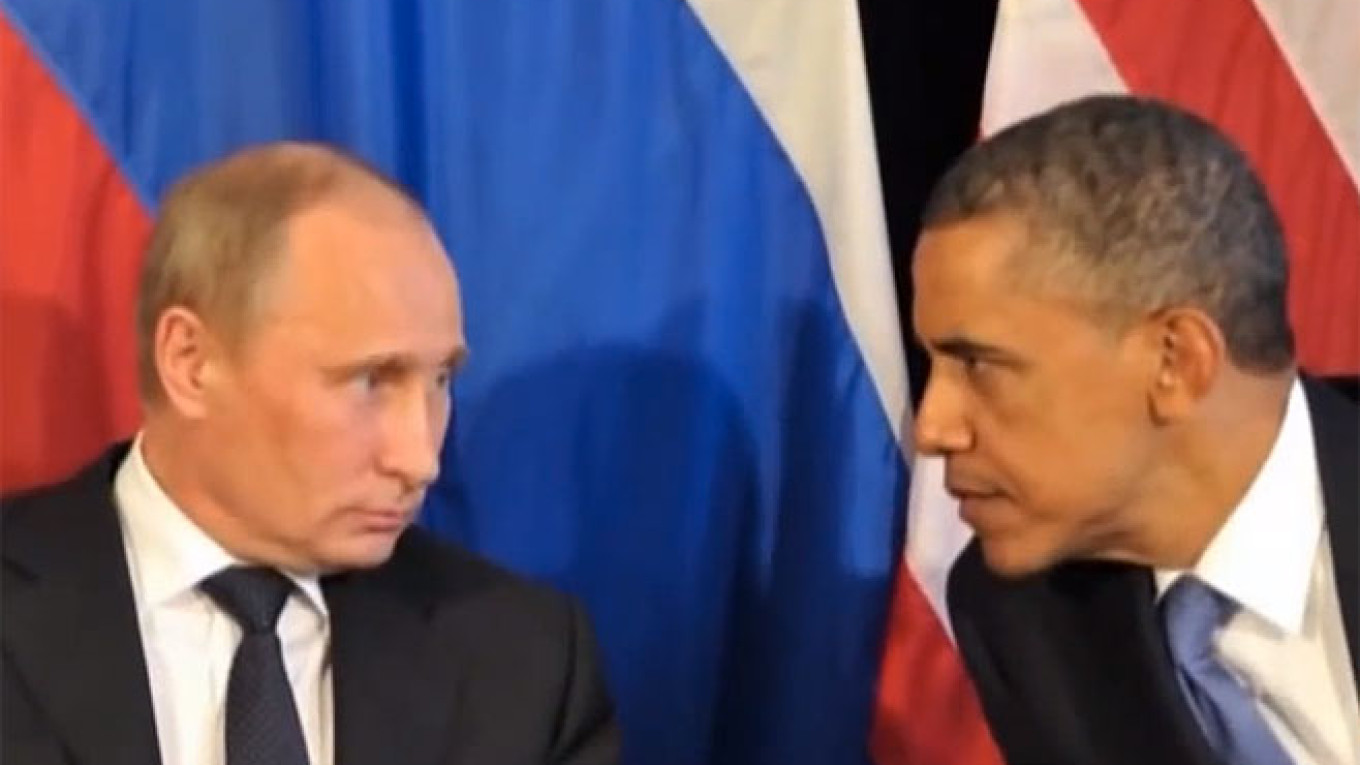The chances of quickly and painlessly resolving the Ukrainian crisis are slim. If U.S. President Barack Obama gets serious, however, and stops wasting his time on useless PR stunts with amateur political kamikazes — such as Ukrainian Prime Minister Arseny Yatsenyuk, whom the U.S. Assistant Secretary of State Victoria Nuland affectionately calls "Yats" — there might still be a chance of turning this around.
Obama should invite President Vladimir Putin and European Union leaders for constructive talks on a complete restructuring of the East-West cooperation agenda. The long-forgotten idea of creating a security and economic zone from Vancouver to Vladivostok must be revived and put into action, with this arch extending to Beijing. After all, no serious large-scale security and economic configuration can be done without China these days.
It may all sound pretty naive and more like wishful thinking, but there does not seem to be any other viable ideas in Washington or Europe, where talk is dominated by Putin-bashing and threats of sanctions that would likely hurt the West more than Russia. Moreover, this may eventually lead to an escalation of tensions on par with the Cuban missile crisis, or even World War III.
Even the hotheads in Washington now admit that the Crimea question is already decided. Sunday's referendum is a purely symbolic gesture since the people of Crimea have already spoken and no threats or sanctions will change this fait accompli.
Those who wish Ukraine well should concentrate on the economic rescue plan, and there is simply no way that can be done without Russia's help.
Not so long ago, Obama hailed the overthrow of Egyptian President Hosni Mubarak as an example of "the power of human dignity." "There are very few moments in our lives where we have the privilege of witnessing history taking place," Obama said. "This is one of those moments. … The people of Egypt have spoken and their voices have been heard."
Do Crimeans not deserve the same things as the people of Egypt, or for that matter of Kosovo, whose independence from Serbia the U.S. also supported?
Of course, Obama will probably not listen to my humble advice. During his second term he is pursuing the same reckless and provocative policy toward Russia that George Bush pursued before him.
The Washington war machine and the media prefer to forget that after 9/11, Putin offered his country's full support to the U.S., and that support was instrumental in defeating the Taliban and consequently saving countless U.S. soldiers during the Afghan War.
At the time, almost all U.S. politicians praised Putin and treated him like a hero, but when he suggested building on this cooperation by forming a political, economic and military alliance with the West, he was unceremoniously rebuffed. Such an alliance would be an invaluable boost not only to the two countries' common struggle against global jihad, but also to energy security, nuclear nonproliferation, agriculture and space research. Instead of embracing this sensible proposal, Washington scorned Putin's offer by launching a "color revolution" crusade across the former Soviet republics and promoting further NATO expansion, including in Georgia and Ukraine. Venerable former U.S. diplomat George Kennan was correct when he said this policy was a huge blunder that stained U.S.-Russian relations.
Now, to further weaken Russia, the EU, under Washington's direction, has invited six post-Soviet countries to sign association agreements. Had the EU truly been interested in helping these countries, it should have included Russia on this list. This would benefit all sides, and most of all Ukraine, which has the strongest family, demographic, economic, religious and cultural ties with Russia.
But who cares about Ukrainians? They were just pawns in the West's geopolitical games anyway.
Edward Lozansky is president of the American University in Moscow.
A Message from The Moscow Times:
Dear readers,
We are facing unprecedented challenges. Russia's Prosecutor General's Office has designated The Moscow Times as an "undesirable" organization, criminalizing our work and putting our staff at risk of prosecution. This follows our earlier unjust labeling as a "foreign agent."
These actions are direct attempts to silence independent journalism in Russia. The authorities claim our work "discredits the decisions of the Russian leadership." We see things differently: we strive to provide accurate, unbiased reporting on Russia.
We, the journalists of The Moscow Times, refuse to be silenced. But to continue our work, we need your help.
Your support, no matter how small, makes a world of difference. If you can, please support us monthly starting from just $2. It's quick to set up, and every contribution makes a significant impact.
By supporting The Moscow Times, you're defending open, independent journalism in the face of repression. Thank you for standing with us.
Remind me later.


